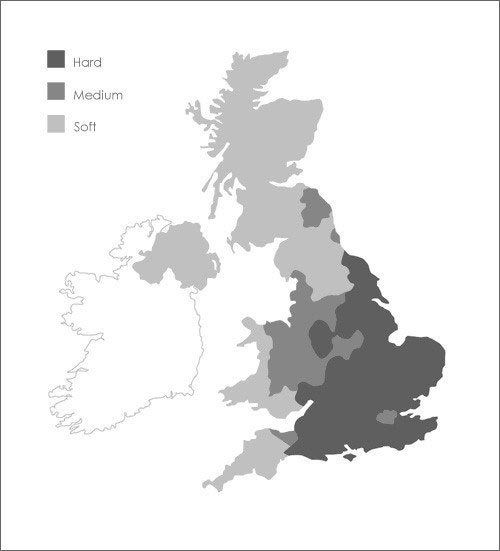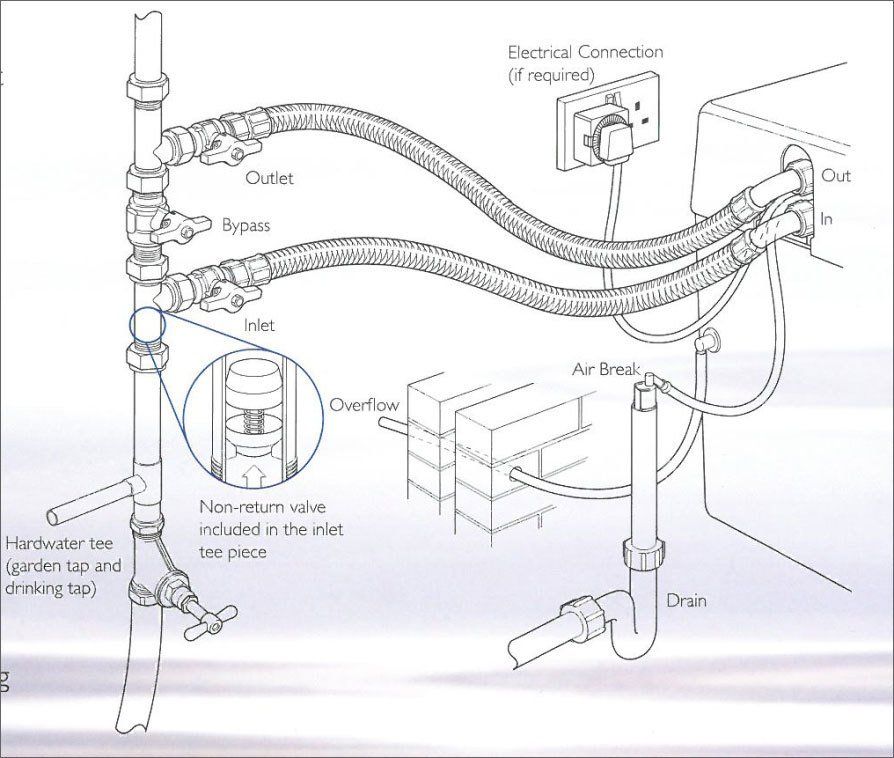Soft Water Benefits
Soft water benefits
At Ultrapure, we supply and install domestic and commercial water softeners and more at competitive prices. We are based in St Ives but serve Lincolnshire, Hertfordshire, Northamptonshire and throughout Cambridgeshire.
Why do I need a water softener?
Water softeners
are designed to neutralise the damage caused by hard water. When naturally soft rainwater percolates through rock such as limestone, it absorbs minerals like calcium and magnesium which harden the water. The hardness of water within the UK varies depending on the local geology, however, typically southern areas are more greatly affected by hard water. If you are unsure about hard water in your area give us a call or contact your water company. You could also look at the element in your kettle. If you see white limescale deposits, you have hard water.

How do water softeners work?
A water softener passes hard water through a bed of resin crystal beads. An ion exchange occurs where the limescale and minerals are captured, in turn, softening the water. The resin beads become exhausted and need to be flushed through using a salt water solution. This process is known as regeneration. The salt water solution is washed away to drain and does not enter the household water supply.
What are the benefits of soft water?
If you live in a hard water area, the installation of a water softener in your home will bring the benefits that those living in naturally soft water areas enjoy:
- Any existing limescale within heating systems and household appliances is reduced and future deposits are prevented. This increases efficiency and extends the appliance's life expectancy.
- Save money on household cleaning detergents and bathroom products such as shampoo and shower gel as soft water makes a small amount of product go a long way. Using a smaller amount of cleaning product is also more environmentally friendly!
- Not only will you use less of your cleaning product, cleaning will take less time and effort as soft water leaves less residue than hard water.
- Laundry feels softer.
- Many dry skin condition sufferers have said that soft water greatly relieves their symptoms.
- It is claimed that cooking with soft water enhances the taste of food and drink.
If you would like, you can retain a supply of hard water for drinking purposes.
Hard Water

Soft Water
Installation
Installing a water softener is like most plumbing jobs – it can be very easy or it can be challenging. At Ultrapure we have a qualified team that have installed countless water softeners over the years.
A water softener is plumbed into the incoming or ‘rising’ main from where it will soften the water. Hard water drinking taps should be teed off before the water softener bypass. There are four connections: the inlet, outlet, drain and overflow. Hard water travels from the inlet to the softener and the softened water is returned to the outlet. From there it will feed the rest of the house. Periodically the softener will regenerate itself. During the regeneration cycle, drain water is discharged from the softener via the drain tube to a suitable waste connection.

Water conditioners
Please note that water softeners should not be confused with water conditioners. Water conditioners attach to existing pipework and release an electric charge which stops limescale forming quickly. Unlike water softeners, they do not remove calcium and magnesium (hardness) from the water. When using a water conditioner, limescale will not build up in places where water flows freely but will still build up in places where water ‘sits’, for example, in your water tank. There is also no reduction in the use of soaps and powders, removal of scum etc. and the lovely, silky feel of soft water is not experienced.
Our range of services
- Water softener supply and installation
- Reverse osmosis systems
- Block salt and tablet salt
- Taps and faucets
- Water filtration
- Service and repairs
Please clickhereto see the most common types of water softener we supply and install.
For water softeners in St Ives, Ely, Huntingdon, and Cambridgeshire, call Ultrapure on
01480 464 824
© 2024. The content on this website is owned by us and our licensors. Do not copy any content (including images) without our consent.

